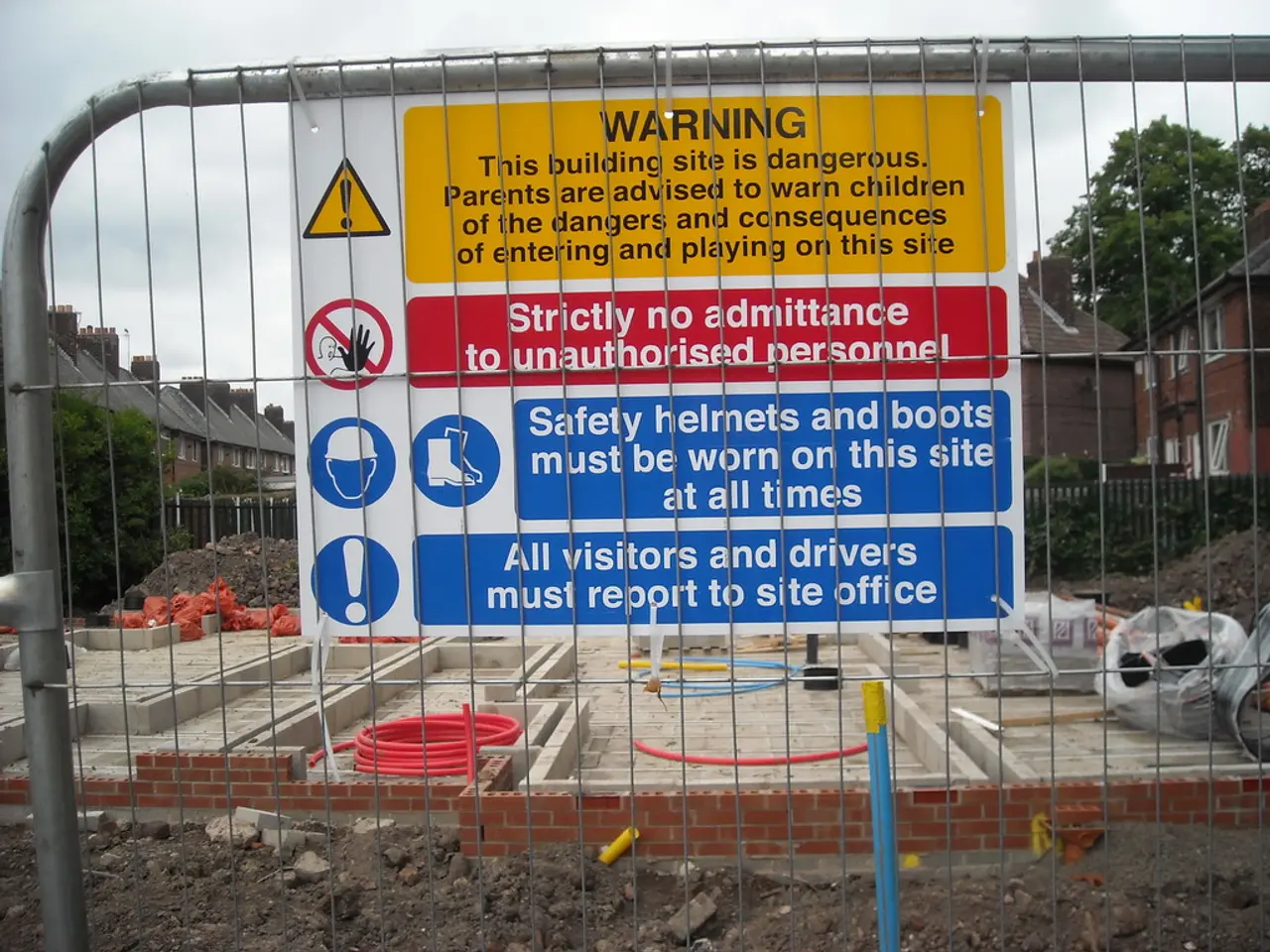Unraveling Construction Delay Claims: Examinations on Legal Aspects and Remedies
In the ever-evolving landscape of construction, delays can occur due to various reasons, from weather events and labor shortages to changes in project scope. These delays can lead to construction delay claims, requests for compensation or extension of time due to unforeseen or unavoidable delays in a construction project.
As the focus on sustainability and compliance with environmental regulations increases, more stringent timelines and delivery expectations are becoming the norm. This necessitates proactive strategies to address potential delays, ensuring projects stay on track and within budget.
The legal framework surrounding construction delay claims is complex, encompassing statutory laws, contract terms, and precedents established by case law. The main legal provisions governing the responsibility of contracting parties in construction delay claims are based on compensation for damages caused by delays attributable to the contractor, with entitlement arising once the agreed construction period is exceeded and ending when the building is substantially ready for acceptance. Proof of delay and documentation are essential, with courts often referencing the rental value for comparable properties to calculate damages.
Delays can be categorised into excusable and non-excusable, as well as compensable and non-compensable. Excusable delays arise from unforeseen circumstances, such as extreme weather events, labor strikes, or changes in governmental regulations. Non-excusable delays, on the other hand, are attributed to factors within the contractor's control, including poor scheduling or inadequate project management.
Non-compensable delays occur when the contractor bears the burden of the delay without the right to compensation, often linked to their own inefficiencies. Compensable delays, however, typically refer to situations where the delay is caused by external factors, allowing the contractor to seek financial reimbursement.
Effective project scheduling is paramount in mitigating construction delay claims. Key elements include task identification, time estimation, resource allocation, and the Critical Path Method (CPM). Utilising collaborative project management tools can enhance real-time communication, allowing issues to be promptly identified and addressed before they escalate into significant delays.
Communication and coordination techniques are equally important in managing construction delay claims, with regular meetings among stakeholders fostering transparency and information exchange. In cases where other methods prove inadequate, litigation becomes necessary. However, dispute resolution for construction delay claims typically involves negotiation, mediation, arbitration, and litigation, with negotiation often being the first step and mediation providing a more collaborative approach.
Evidence of communication between contractors and clients is critical, including emails, memos, and official notices that articulate concerns over delays or requests for extensions. Documentation plays a crucial role in substantiating construction delay claims, with essential documentation including project schedules, correspondence, reports, daily logs, meeting minutes, change orders, photographs, and progress reports.
The evolving landscape of construction law has led to several emerging trends, including the increasing use of technological solutions, growing emphasis on collaboration among stakeholders, and a noticeable shift towards alternative dispute resolution mechanisms. Adherence to the legal framework is vital, as failure to comply can result in disputes.
In conclusion, understanding construction delay claims, their causes, and the legal framework surrounding them is crucial for all parties involved in construction projects. By being proactive, maintaining effective communication, and adhering to best practices, delays can be minimised, and projects can be completed successfully and efficiently.








